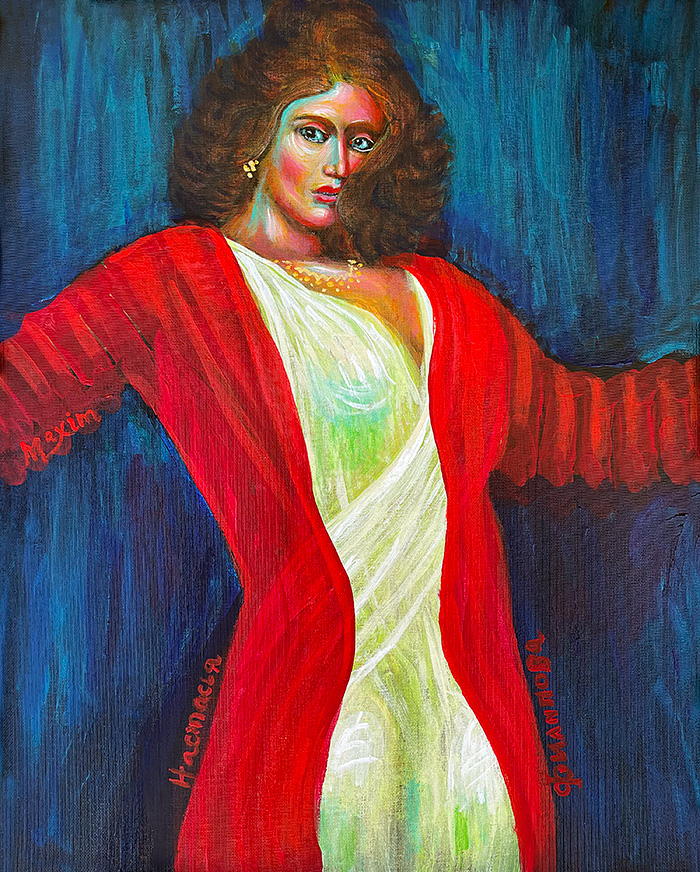
- Details
- Category: Maxim
- Hits: 712

"Amour Propre of Nastasya Filippovna", acrylic on canvas, by Bishop Maxim, 2022
Of the many characters we see in Dostoyevsky's novels, few of the principal characters are female. However, in one of his more famous novels, The Idiot, we find perhaps one of the strongest female characters of most nineteenth-century literature, if not of Europe, then at least of Russia. Nastassya is the most dramatic and complex character in the novel The Idiot. Defined by her sensual beauty and remarkable looks, she steers the course of this novel and the fate of Prince Myshkin and Rogozhin. Nastasya Filippovna, a proud, yet exploited woman, is by far one of Dostoyevsky's most intriguing characters. She has an instantaneous and dramatic effect on the characters surrounding her. The Idiot can understand Nastasya Filippovna's abrupt changes of mood, and perhaps we should not attempt to narrow the formula for her motivations.
Nastasya is highly emotional, full of guilt, and out for revenge — things that cannot be logically equated to a cause-effect relationship. One of the best ways to understand Nastasya's actions is to imagine her desperate situation. She cannot continue as Totsky's mistress; the pose has grown tiring. She cannot marry Ganya, who lusts after her money and has threatened to mistreat her. Most of all, she cannot marry the innocent Prince Myshkin, who insists to her and other people that Nastasya is not what she seems, that she is more kind and sweet than her haughty demeanor seems to indicate. Nastasya is far more objective about herself than either Myshkin or Rogozhin; the former sees suffering beauty in her eyes, and so colors the whole of her character; the latter sees sensuous beauty and is spellbound. It is Nastasya's liability that she is so extraordinarily beautiful; men think of her only in terms of sex — and the money necessary for the luxury. Even the Prince, who at first we may believe is not inclined to notice the sensuality of women, is overwhelmed by her great beauty. Looking at her picture, he calls her"astonishingly pretty"; he notes her "exquisite simplicity" and her "dark, deep eyes."
